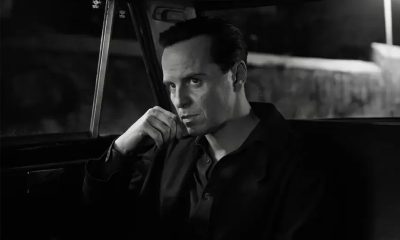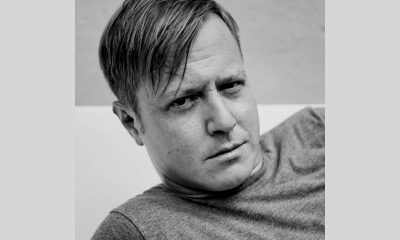Music & Concerts
Riding the joy train with Amy Ray
New solo project ‘If It All Goes South’ focuses on healing
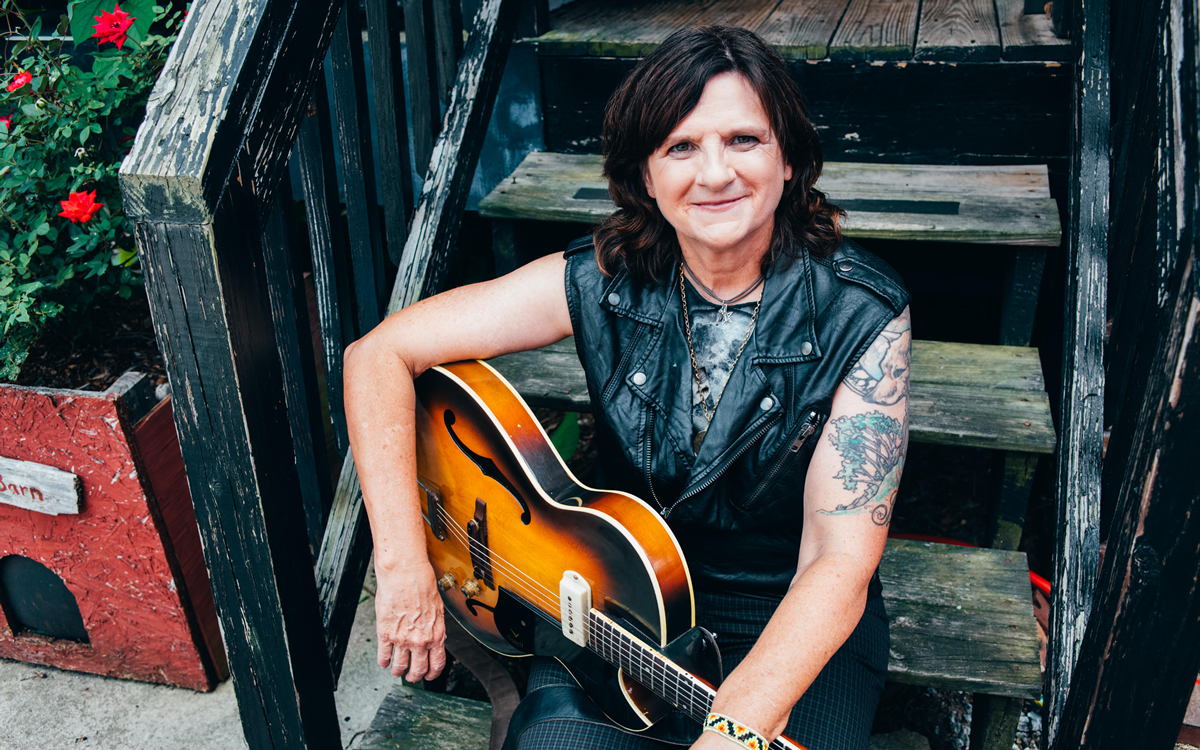
Whether out singer/songwriter Amy Ray is performing with longtime musical partner Emily Saliers as one half of the Indigo Girls, as she has since the mid-1980s, or going solo as she did with her solo debut “Stag” in 2001, you recognize her instantly. Her distinctive vocal style, which suits whatever genre she’s performing – folk, punk, Americana, or gospel – has become as much her trademark as the outspokenness of her lyrics.
“If It All Goes South” (Daemon), Ray’s exceptional seventh solo album is a welcome addition to her singular output, touching on themes of queerness and social issues, all performed in her warm and welcoming manner. Amy was gracious enough to make time to talk about the new album around the time of its release.
BLADE: Before we get to your new album “If It All Goes South,” I wanted to go back in time a little bit. Your 2001 solo debut album “Stag” and its 2005 follow-up “Prom” are firmly rooted in a punk rock/riot grrrl aesthetic. While the Indigo Girls are more than capable of rocking out, did you feel that the songs on those albums wouldn’t have been a good fit for what you do with Emily (Saliers)?
AMY RAY: Yes. I think it was because of two things. One was the collaborators. Those were people I’m a fan of, most of them are people that Daemon Records (Ray’s record label) had an association with, in some way or another. It was kind of like this other camp of people that were different from the collaborators that the Indigos would typically play with. It tended to be more studio accurate, in some ways. As opposed to that punk rock ethic which is music being from a different place, and accuracy maybe being less important than technical prowess.
BLADE: A little more DIY.
RAY: Yeah! And I also think the subject matter, the songs were just a little more singular in a way that was hard to do them as the Indigo Girls and not dilute the message. As soon as you get us together, we really shift the other person’s song, it becomes a duet. The subject matter to me was so specific and gender queer and punk rock edge that it didn’t feel like it would work. At that time, when I wrote (the song) “Lucy Stoners,” Emily wasn’t interested in doing some of those songs. She wasn’t down with the attitude. Now, she would say, I’m sure just knowing her, that [laughs] she’d do it now. Because her attitude has changed. I was hanging out with and influenced by people that were from that DIY movement, and there was lots of gender queer conversation. It was a different place than Emily was in as a gay person. Now, I look back on all of it and I think I was, all the time, reaching around to different collaborations because I love collaborating with different kinds of people. It always teaches me something. It’s also a different itch that I get scratch.
BLADE: In terms of trajectory, to my ear, your most recent three solo albums – 2014’s “Goodnight Tender,” 2018’s “Holler,” and the new one, “If It All Goes South” (Daemon) – in addition to being alphabetically titled, feel like an Americana trilogy. Do you consider them to be linked?
RAY: Yeah. I mean I didn’t say to myself, “This is the third one and then I’ll stop.” But “If It All Goes South” was definitely a record where there was a thread from the other ones and some things that I wanted to achieve that I didn’t feel like I was able to do on the other ones. I think I didn’t even know that until we started making this one. This is more successful at combining a few of my punk-abilly influences into an Americana world. Also, some of that spontaneity we were starting to get on “Holler.” Now that we’ve played together as long as we have as a band, it was at its peak on this record. I think we just needed to make a couple of records to get to that place. I like them all, but for different reasons. They do different things for me. This one gathers up all the loose ends of “Holler” and “Goodnight Tender” musically and ties them up and puts them in a different context, and almost raises the bar. Lyrically, I wanted to have songs that were about healing, a “you’re not alone” kind of vibe, because of the time period that we had just been through. It’s also the same producer (Brian Speiser) on all three, and we’ve worked together on projects. It started off casually – “Hey, I’ve been wanting to do this country record with these songs. Let’s do this together.”
BLADE: Am I reading too much into the album’s title “If It All Goes South,” or is it a play on words, as in “goes south” as a direction and as deterioration?
RAY: You’re not reading too much into it. There’s even more you can read into it, politically. When I was writing (the song) “Chuck Will’s Widow,” Georgia was the epicenter of some big political movement. When Warnock got elected and Abrams declared running for governor again, I was like, “Oh man, I’m in the right place for once.” But we knew it wasn’t always going to be easy. My perspective in that song was a couple things. “If it all goes South, count it as a blessing, that’s where you are.” Yes, it’s directional, and also like, if things get really shitty, try to make the best of it, of course, it’s what you tell your kids all the time.
BLADE: As any Indigo Girls fan or follower of your solo output knows, you have a history of playing well with others, in addition to Emily (Saliers), “If It All Goes South” is no exception with guest vocalists including Brandi Carlile (“Subway”), H.C. McEntire (“Muscadine),” Allison Russell (“Tear It Down”), Natalie Hemby (“From This Room”), and the trio I’m With Her (“Chuck Witt’s Widow”). When you begin the recording process for an album do you have a wish list of musical guests or how does that work?
RAY: I usually have a wish list when I’m writing the song. Alison Brown, she’s part of the band, so I always think about her banjo playing when I’m writing. She doesn’t tour with us, but she’s in the band. I started writing “From This Room” a long time ago, and I started writing it as a duet. I didn’t have anybody in mind at that point, but I hadn’t finished it yet. When I was finishing it for the record, I had just seen Natalie Hemby with The Highwomen and had also just had met her and Emily writes with her sometimes. So, I knew her and I was thinking about her voice. When I wrote “Subway,” in part, in tribute to (the late DJ) Rita Houston, who had been so crucial. She and Brandi Carlile were super close. She really helped develop Brandi’s career in being such an indicator station, getting other people on board. So, I was thinking about Brandi and the chorus vocals that would be there because I was writing kind of an ambitious chorus for me [laughs]. I’m like, “I’m gonna have to have Brandi in here!” For “North Star,” that kind of gospel song at the end, when I wrote it and Jeff Fielder, the guitar player, and I were demoing it, I was like, “This is not right. There’s another ingredient. I don’t know enough about the kind of music I’m trying to write to do it.” I got Phil Cook to come in, as a co-writer really, to finish the song musically. Fill out the chords and make it the gospel song I was trying to write. The only person I wanted to do this was Phil Cook. I am just very specific. Like Sarah Jarosz, on this record in particular I wanted to get a mandolin player and I wanted Sarah to play mandolin. We’re always covering the parts ourselves. Jeff’s a great mandolin player, but Sarah Jarosz is a fucking prodigy [laughs]. … It’s never like a wish list of, “Who’s famous? Who can we get?” It’s more a case of who are these songs geared towards, so that when they come into the studio, you don’t tell them anything, really. They just do what they do great, and it works.
BLADE: You mentioned the late, queer, influential WFUV DJ Rita Houston, and I was wondering what you think the loss of Houston means for new artists?
RAY: It’s a huge hole in the universe of people that would take a new artist and sort of help develop them, take chances at radio, and give people that space. She also was a mentor to artists. She wasn’t ever judging your art by whether you were gay or not, or what color your skin was. … She was a mentor in shared musicality. Being able to trust her and understanding how that taught you about the terrain that you’re in and who you can and can’t trust in that way.
BLADE: “Subway” ends with the line “This Georgia girl has got it bad for New York.” With that in mind, could there be an Amy Ray or Indigo Girls musical on Broadway at some point in the future?
RAY: [Big laugh] That’s Emily’s territory. She’s working on some things. A couple of different musicals, and I’m not working on them with her. She’s developing two different ones, and I think one of them has actually gotten some traction and some workshopping that’s pretty important. There is a musical that a friend of mine from high school has been writing that’s really interesting and it’s gotten a lot of workshops. It’s still in the early stages. It uses Michelle Malone’s music and my solo music. Then there’s a movie coming out called “Glitter and Doom” which is a movie musical that’s just Indigo Girls music. It’s coming out next year, I think. We’re still working on the final credits song.
BLADE: After the current Indigo Girls tour wraps up, is there a possibility of an Amy Ray solo tour?
RAY: Yeah. We’re booking dates in February for the South. I’ve tried touring in cold places in February, and it’s hard [laughs]. We’ll head up to the North in May.
Music & Concerts
Berkshire Choral to commemorate Matthew Shepard’s life
Concert held at Washington National Cathedral
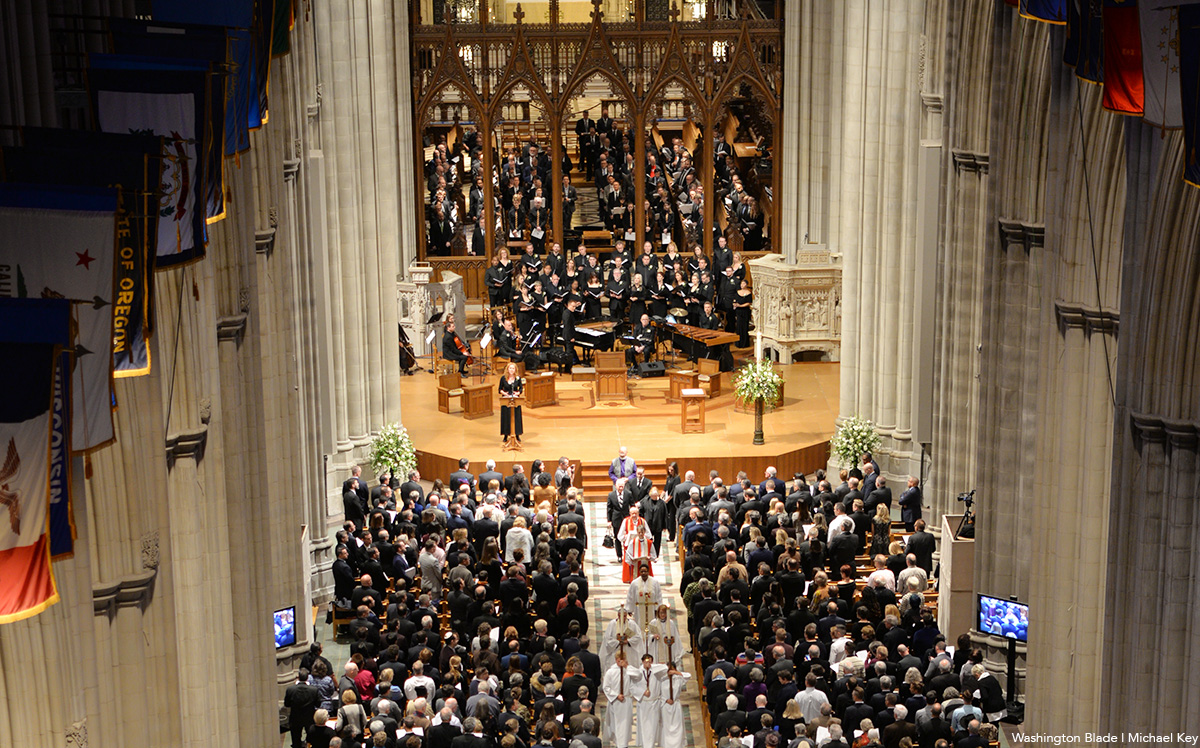
Berkshire Choral International will present a concert performance of composer Craig Hella Johnson’s fusion oratorio “Considering Matthew Shepard” on Friday, July 11, 2025 at 7:30 p.m. at the Washington National Cathedral.
The program will be guest conducted by Dr. Jeffrey Benson, a native of the DMV who currently serves as Director of Choral Activities at San José State University. The concert is a partial benefit for the Matthew Shepard Foundation. Notably, Matthew’s remains are interred at the National Cathedral and his parents, Dennis and Judy, will give opening remarks at the performance.
Tickets are $20 – $65, and 50% of ticket proceeds will be donated to the Matthew Shepard Foundation. Tickets are only available online at berkshirechoral.org.
Music & Concerts
Indigo Girls coming to Capital One Hall
Stars take center stage alongside Fairfax Symphony
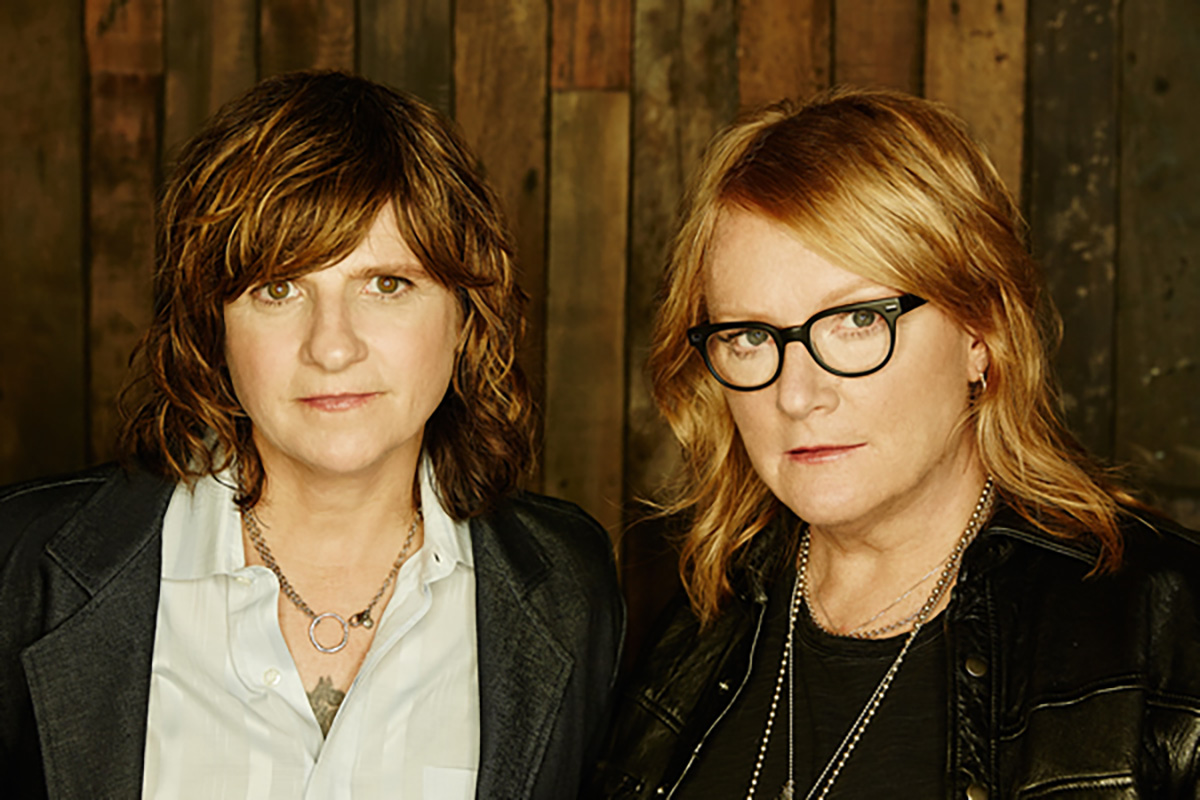
Capital One Center will host “The Indigo Girls with the Fairfax Symphony Orchestra” on Thursday, June 19 and Friday, June 20 at 8 p.m. at Capital One Hall.
The Grammy Award-winning folk and pop stars will take center stage alongside the Fairfax Symphony, conducted by Jason Seber. The concerts feature orchestrations of iconic hits such as “Power of Two,” “Get Out The Map,” “Least Complicated,” “Ghost,” “Kid Fears,” “Galileo,” “Closer to Fine,” and many more.
Tickets are available on Ticketmaster or in person at Capital One Hall the nights of the concerts.
Music & Concerts
Underdog glorious: a personal remembrance of Jill Sobule
Talented singer, songwriter died in house fire on May 1
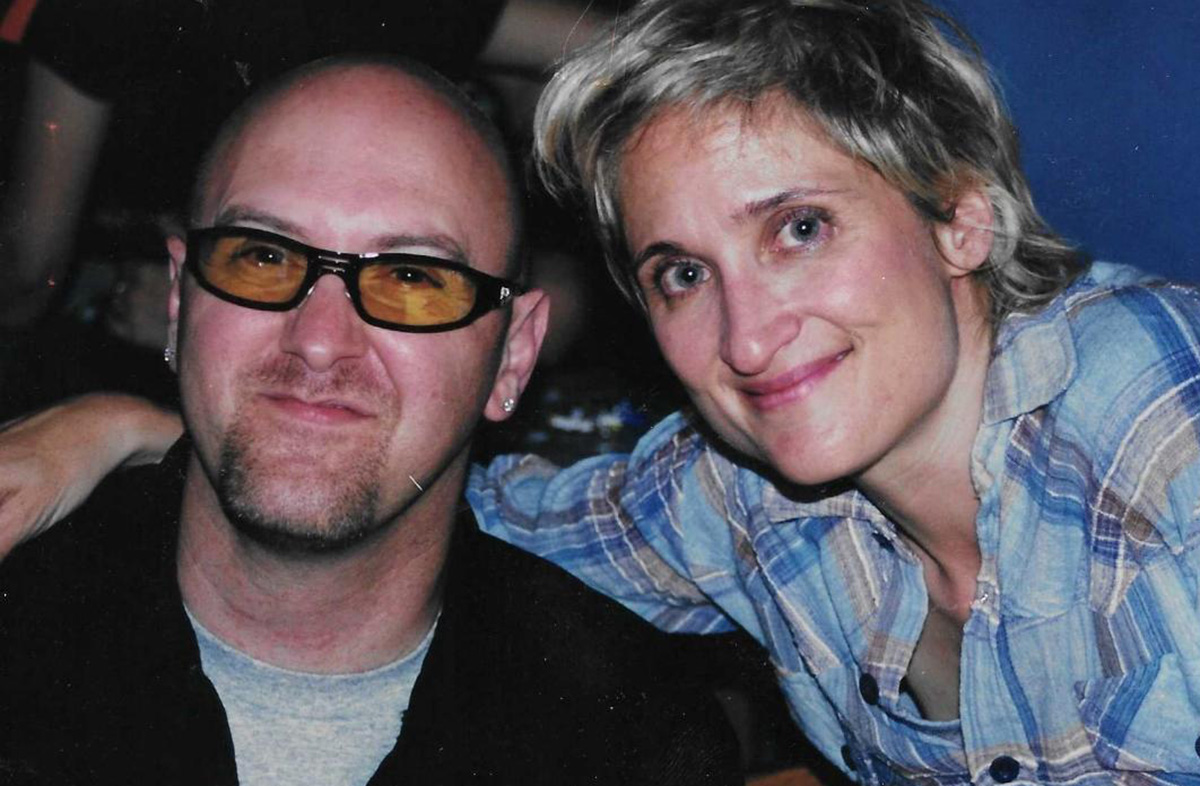
I’ve always prided myself on being the kind of music consumer who purchased music on impulse. When I stumbled across “Things Here Are Different,” Jill Sobule’s 1990 MCA Records debut album on vinyl in a favorite Chicago record store, I bought it without knowing anything about her. This was at a time when we didn’t have our phones in our pockets to search for information about the artist on the internet. The LP stayed in my collection until, as vinyl was falling out of fashion, I replaced it with a CD a few years later.
Early in my career as an entertainment journalist, I received a promo copy of Jill’s eponymous 1995 Atlantic Records album. That year, Atlantic Records was one of the labels at the forefront of signing and heavily promoting queer artists, including Melissa Ferrick and Extra Fancy, and its roster included the self-titled album by Jill. It was a smart move, as the single “I Kissed A Girl” became a hit on radio and its accompanying video (featuring Fabio!) was in heavy rotation on MTV (when they still played videos).
Unfortunately for Jill, she was a victim of record label missteps. When 1997’s wonderful “Happy Town” failed to repeat the success, Atlantic dumped her. That was Atlantic’s loss, because her next album, the superb “Pink Pearl” contained “Heroes” and “Mexican Wrestler,” two of her most beloved songs. Sadly, Beyond Music, the label that released that album ceased to exist after just a few years. To her credit, the savvy Jill had also started independently releasing music (2004’s “The Folk Years”). That was a smart move because her next major-label release, the brilliant “Underdog Victorious” on Artemis Records, met a similar fate when that label folded.
With her 2009 album “California Years,” Jill launched her own indie label, Pinko Records, on which she would release two more outstanding full-length discs, 2014’s “Dottie’s Charms” (on which she collaborated with some of her favorite writers, including David Hadju, Rick Moody, Mary Jo Salter, and Jonathan Lethem), and 2018’s stunning “Nostalgia Kills.” Jill’s cover of the late Warren Zevon’s “Don’t Let Us Get Sick” on “Nostalgia Kills” was particularly poignant as she had toured with him as an opening act.
Jill was a road warrior, constantly on tour, and her live shows were something to behold. My first interview with Jill took place at the Double Door in Chicago in early August of 1995, when she was the opening act for legendary punk band X. She had thrown her back out the previous day and was diagnosed with a herniated disc. To be comfortable, she was lying down on a fabulous-‘50s sofa. “I feel like I’m at my shrink’s,” she said to me, “Do you want me to talk about my mother?”
That sense of humor, which permeated and enriched her music, was one of many reasons to love Jill. I was privileged to interview her for seven of her albums. Everything you would want to know about her was right there in her honest lyrics, in which she balanced her distinctive brand of humor with serious subject matter. Drawing on her life experiences in songs such as “Bitter,” “Underachiever,” “One of These Days,” “Freshman,” “Jetpack,” “Nothing To Prove,” “Forbidden Thoughts of Youth,” “Island of Lost Things,” “Where Do I Begin,” “Almost Great,” and “Big Shoes,” made her songs as personal as they were universal, elicited genuine affection and concern from her devoted fans.
While she was a consummate songwriter, Jill also felt equally comfortable covering songs made famous by others, including “Just A Little Lovin’” (on the 2000 Dusty Springfield tribute album “Forever Dusty”) and “Stoned Soul Picnic” (from the 1997 Laura Nyro tribute album “Time and Love”). Jill also didn’t shy away from political subject matter in her music with “Resistance Song,” “Soldiers of Christ,” “Attic,” “Heroes,” “Under the Disco Ball,” and the incredible “America Back” as prime examples.
Here’s something else worth mentioning about Jill. She was known for collaboration skills. As a songwriter, she maintained a multi-year creative partnership with Robin Eaton (“I Kissed A Girl” and many others), as well as Richard Barone, the gay frontman of the renowned band The Bongos. Jill’s history with Barone includes performing together at a queer Octoberfest event in Chicago in 1996. Writer and comedian Julie Sweeney, of “SNL” and “Work in Progress” fame was another Chicago collaborator with Sobule (Sweeney lives in a Chicago suburb), where they frequently performed their delightful “The Jill and Julia Show.” John Doe, of the aforementioned band X, also collaborated with Jill in the studio (“Tomorrow Is Breaking” from “Nostalgia Kills”), as well as in live performances.
On a very personal note, in 2019, when I was in the process of arranging a reading at the fabulous NYC gay bookstore Bureau of General Services – Queer Division, I reached out to Jill and asked her if she would like to be on the bill with me. We alternated performing; I would read a couple of poems, and Jill would sing a couple of songs. She even set one of my poems to music, on the spot.
Jill had an abundance of talent, and when she turned her attention to musical theater, it paid off in a big way. Her stage musical “F*ck 7th Grade,” a theatrical piece that seemed like the next logical step in her career, had its premiere at Pittsburgh’s City Theatre in the fall of 2020, during the height of the pandemic. The unique staging (an outdoor drive-in stage at which audience members watched from their cars) was truly inspired. “F*ck 7th Grade” went on to become a New York Times Critic’s pick, as well as earning a Drama Desk nomination.
In honor of the 30th anniversary of Jill’s eponymous 1995 album, reissue label Rhino Records is re-releasing it on red vinyl. Jill and I had been emailing each other to arrange a time for an interview. We even had a date on the books for the third week of May.
When she died in a house fire in Minnesota on May 1 at age 66, Jill received mentions on network and cable news shows. She was showered with attention from major news outlets, including obits in the New York Times and Rolling Stone (but not Pitchfork, who couldn’t be bothered to review her music when she was alive). Is it wrong to think that if she’d gotten this much attention when she was alive she could have been as big as Taylor Swift? I don’t think so.
-

 U.S. Supreme Court4 days ago
U.S. Supreme Court4 days agoSupreme Court upholds ACA rule that makes PrEP, other preventative care free
-

 U.S. Supreme Court4 days ago
U.S. Supreme Court4 days agoSupreme Court rules parents must have option to opt children out of LGBTQ-specific lessons
-

 Television4 days ago
Television4 days ago‘White Lotus,’ ‘Severance,’ ‘Andor’ lead Dorian TV Awards noms
-

 Music & Concerts4 days ago
Music & Concerts4 days agoBerkshire Choral to commemorate Matthew Shepard’s life



